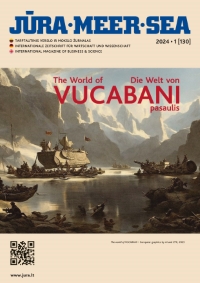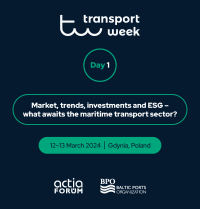TT Club insurers identify high risks, urge stricter compliance on operators
2012 03 31
- Details
INTERNATIONAL provider of insurance and related risk management services, TT Club, has called on operators to save costs by tightening procedures to minimise accidents, breakdowns, delays and other risks.
Speaking at the freight industry forum, TOC Container Supply Chain Asia in Hong Kong recently, TT Club's director of global risk assessment, Laurence Jones, said that based on an extensive analysis of the company's claims, valued in excess of US$120 million, nearly 80 per cent of incidents resulting in a claim were avoidable and the vast majority involve human error.
In urging operators to heed lessons of TT's analysis, Mr Jones said: "We found that the adoption of proven operational procedures and available safety technology could prevent many of the incidents. Relatively small investments in training, and maintenance could bring significant commercial benefits through less disruption to operations, lower insurance premiums and more satisfied customers."
In terms of causal effect the analysis showed that 63 per cent of the total cost (as opposed to the number) of claims were due to operational factors, with maintenance (or lack of it) accounting for a further third; leaving those lacking human intervention, mainly weather related incidents contributing only four per cent of the cost.
When it comes to the movement of freight around the world, TT Club's concludes that the prevention of many claims lies in efficient and well constructed processes and the analysis presented by Jones reinforced this belief. Forty-three per cent of the cost of claims from operational factors resulted from errors or faults in an operator's systems or processes.
"While theft accounted for 29 per cent of operational claims, poor processes and systems were the biggest culprits," Mr Jones said. "A whole range of substandard practices were in evidence, such as bad stowage and handling; customs fines due to incorrect or late paperwork; poor instruction on management of refrigeration equipment; and wrong release of cargo. All such claims could have been avoided with tighter procedures."
The other major contributor to damage and cost was found to be fire destroying property, equipment and cargo. Most building damage came from electrical faults; for lifting equipment, a lack of sufficient, regular maintenance checks was the main cause and fire in container cargo was mainly due to poor stowage or mis-declaration of the goods. Each factor, Mr Jones said, could be mitigated by adequate attention by either operators or shippers.
Source Shipping Gazette - Daily Shipping News
The magazine SEA has been published since 1935
International business magazine JŪRA MOPE SEA has been published since 1999
The first magazine in Eurasia in the four languages: English, Chinese, Russian and Lithuanian
|
|










